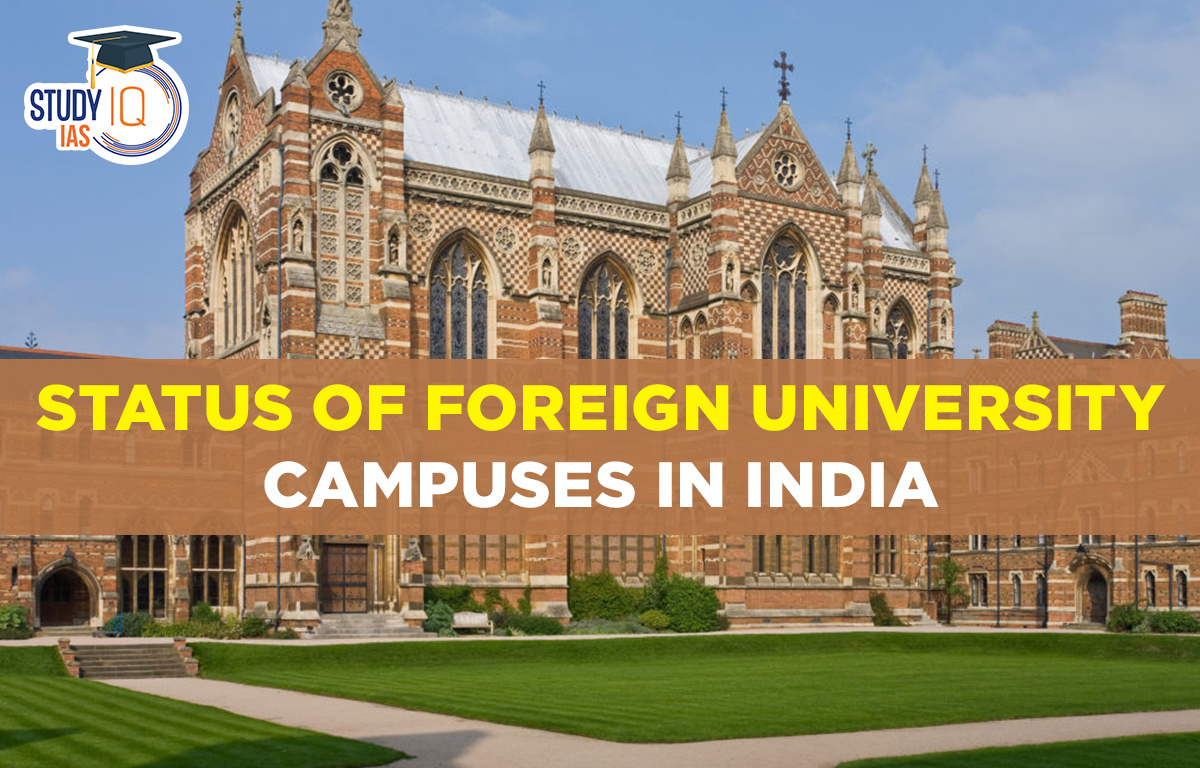Table of Contents
More on Status of Foreign University Campuses in India
- The National Education Policy, of 2020, envisages a legislative framework to allow top global universities to operate in India.
- Against this backdrop, the University Grants Commission (UGC) has announced draft regulations for ‘Setting up and Operation of Campuses of Foreign Higher Educational Institutions in India’.

Draft Norms Announced by UGC
- Criteria: Top 500 global rankings or reputed universities shall be eligible to apply and will be granted approval to operate for 10 years.
- Application: The application will be considered by a standing committee appointed by the UGC which will submit its recommendations within 45 days.
- Autonomy: The regulations provide foreign institutions complete autonomy to hire faculty and other staff members either from abroad or in India.
- Fund Management: Foreign universities will be allowed to repatriate funds to parent campuses.
Importance of the Move
- Global Destination: This shall prove to be an excellent move and will pave the way for India to become a global destination for education.

- No Brain Drain: This move will help prevent brain drain and loss of forex due to Indian students studying overseas and attract overseas students to India.
- It is to be noted that after Chinese students, Indians are the largest category of foreign students in countries like the U.S., the U.K. and Australia.
- Promote Competition: It will also encourage competition among various players in the country, and allow faculty-to-faculty research collaboration among various universities.
Associated Concerns
- Representation: Draft regulations have no provisions for caste-based/economic-based/minority-based/armed forces-based/Divyang-based/women reservation in student admissions.
- Social Justice: As per a school of thought, this move might facilitate foreign universities for the welfare of coaching institutes, not students.
- Hence, the social justice concerns might be ignored which are imperative where higher education is a very effective means for social change.
- Cost: Allowing international universities to operate in India might raise the cost of education, rendering it out of reach for a large part of the population.
- Fund: Repatriation of funds to the parent institution abroad, which was prohibited previously, has also been allowed.
- There’s also no requirement for foreign education providers to maintain a corpus fund to operate in India.
- Ambiguity: It is being said that there is no clarity on the constitution and composition of the UGC standing committee for monitoring the operation of campuses of foreign HEIs in India.


 SSC CGL Exam 2025 Apply Online Starts Ap...
SSC CGL Exam 2025 Apply Online Starts Ap...
 Daily Quiz 19 April 2025
Daily Quiz 19 April 2025
 Vehicle-to-Grid (V2G) Technology and its...
Vehicle-to-Grid (V2G) Technology and its...





















